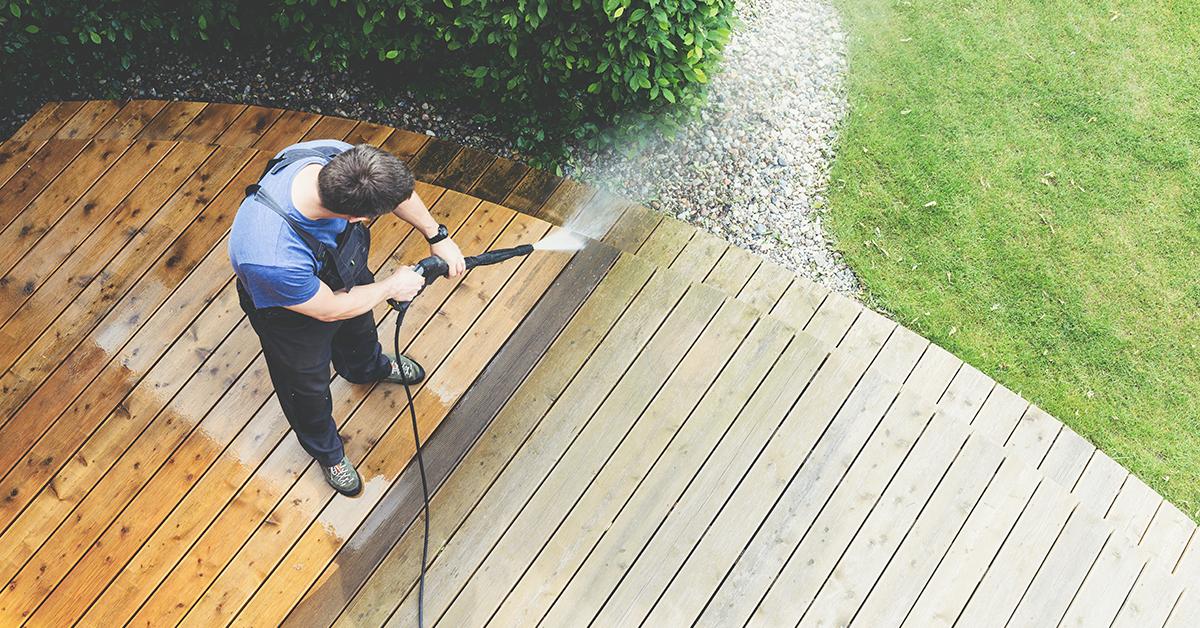Summerville Pressure Washing Pros remove dirt, grime, moss, and other substances that damage building and outdoor materials. It also stops corrosion before it gets a hold.
It’s one of the fastest ways to get things spick and span. However, hiring a professional with experience and using the right equipment for your project is important.
Pressure washing is a relatively inexpensive way to clean the exterior of your home or business. Flat, easily accessible surfaces like driveways and patios are generally less than a square foot to clean, so the cost per wash is low. However, larger areas like homes and commercial buildings require more time to clean, and a professional will charge accordingly. These fees include the technician’s labor, gas, insurance, and overhead costs.
This makes this cleaning method an attractive option for many property owners. While some stains like oil and rust will never come off with a power wash, a good one can remove dirt and grime that has built up over time. Plus, this method can be used to prepare your building for a new coat of paint or other renovations.
If you want to take on the project yourself, it’s not hard to find a cheap and reliable pressure washer. You can buy a model that uses electricity rather than gas and is designed to be lightweight and portable. It’s important to know the limitations of your new washer, though, since the higher the PSI, the more water it can spray and the more likely you are to damage a surface.
You can also find models with nozzles that are specially designed to be more gentle or harder on surfaces. Green and white nozzles, for example, typically produce a wide, less aggressive spray angle that is less likely to cause damage. Avoid using red or yellow nozzles, as these are intended for more intense cleaning and can cause serious damage to certain surfaces.
Keep in mind, though, that you should only use a power washer on sturdy and durable materials. Some surfaces, like shingles, can be damaged by the high levels of water pressure, so it’s best to leave this to the professionals. If you’re looking to hire a pro to handle the job for you, be sure to check that they’re bonded, insured, and licensed before they start working. Also, be prepared to pay a little more for an experienced and trustworthy company.
It’s Effective
Getting your property’s surfaces clean and free of grime can make a huge difference for the look of your residential or commercial space. Whether it’s mold, mildew, dirt or moss that’s making your exterior spaces unattractive, it’s important to get it removed in order to protect the structural integrity of your building and avoid damage caused by moisture.
Pressure washing uses highly-pressurized water to blast away dirt, grit and other debris from your outdoor spaces, including your driveway, walkways and decks. It’s an efficient way to remove stubborn stains from concrete, wood and other materials that aren’t easy to clean by hand or with traditional cleaning products. The intense water pressure also makes it possible to reach and clean those hard-to-reach spots, like the crevices of your gutters or the bottom of a crack in your home’s brick.
If you’re going to use a pressure washer, make sure you’re familiar with how it works and the appropriate settings. If you’re not an experienced operator, you could cause damage to your outdoor spaces or even hurt yourself by accident.
Start with a low-pressure setting and work your way up, working on larger areas first (like your driveway or sidewalk) and then moving onto smaller ones. Be careful around fragile objects, such as plants or awnings, that could be damaged by the force of water. And always wear protective clothing and ear and eye protection to shield yourself from any accidental pressurized spray.
There are a variety of different pressure washer nozzles available, so choose carefully to suit your specific needs. A 0 degree red-tipped nozzle, for example, shoots a concentrated jet of water (like a water laser) that can be used to strip caked-on dirt from construction tools or strip paint and rust off equipment. But for everyday use, a green or yellow nozzle that emits a wider spray is perfect for general cleaning and for applying soap.
You should always follow the manufacturer’s instructions when assembling and using your pressure washer, and only operate it in safe weather when there’s no risk of overheating or running out of fuel. If you’re renting a machine, be sure to ask your retailer about any accessories that can make it easier to clean certain types of surfaces or hard-to-reach spots.
It’s Safe
While it may seem like high-powered water shooting out of a hose can be dangerous, a professional can do the job quickly and efficiently without any serious damage. The nozzle is pointed away from the body and the pressure is adjusted so that it does not exceed the capabilities of the operator. However, this is not to suggest that anyone should attempt to use a pressure washer at home, as there are many risks associated with this method.
Pressure washing removes a significant amount of dirt and grime from surfaces, making it difficult for bacteria or vermin to thrive on the surface of your building or equipment. In addition, it is effective at removing loose or peeling paint, preparing the surface for a fresh coat of paint that will protect the property and make it look brand new.
If you do decide to pressure wash your own property, it is important to remember that the water can easily damage anything in its path. It can dent vehicles, rip out plant pots, and even shatter glass. It is essential to take your time and focus on the area you are cleaning, as it can be easy to get carried away. It is also important to be mindful of any electrical outlets that are nearby, as the water can easily shoot into them and cause serious injury.
It is recommended to wear non-slip, close-toed shoes when using a pressure washer. Flip-flops and Crocs are particularly dangerous, as the water can quickly penetrate the soles and cause severe cuts and lacerations. In some cases, these cuts can actually penetrate the bloodstream, leading to bacterial infections and even amputation.
Another way to keep yourself safe is to start off with a test surface. Hold the sprayer a few feet away from the surface and slowly move in closer until you feel comfortable with how much pressure you are applying. You should never get closer than 6 inches, as this is the maximum distance at which the force of the hose can cause injury.
It’s Fast
Unlike traditional cleaning methods, which may take hours and require multiple applications of a chemical cleaner, pressure washing gets the job done in a fraction of the time. Using the right settings, you can quickly blast away even the most stubborn stains. It’s also ideal for strong surfaces, as it is unlikely to damage materials like concrete when used properly.
For example, imagine trying to scrub down your patio or driveway with a long-handled sponge mop and a bucket of water. You’d probably end up with an arm workout and only make a dent in the dirt buildup on your home’s exterior. With a pressure washer, you can clean the same surface in just a couple of hours and get it looking like new again.
It’s easy to use too. Just turn on the machine, unlock the handle and release the trigger to activate the sprayer. Then, choose the nozzle you want to use and lock it in place. For the most effective results, start with a low-pressure setting and work your way up to higher ones. This allows the detergent to do its chemistry thing and bonds with grime before it’s blasted off by the high-pressure water. Also, make sure to keep the nozzle at least four feet away from the surface you’re cleaning; holding it too close can strip paint and damage some materials.
Aside from being a quick and effective cleaning method, pressure washing is also good for the environment. It eliminates the need for harmful chemical cleaners, which can wreak havoc on the environment. The nozzle blasts of hot or cold water also prevent bacteria and mold growth on your property, keeping your family safe and healthy. And if you plan to sell your home, regular pressure washing can keep it looking great and increase its value.


